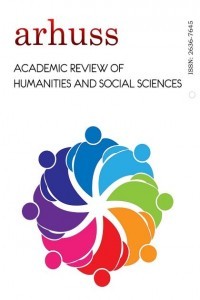
Academic Review of Humanities and Social Sciences
Yazarlar: Anar MURADOV
Konular:Siyasi Bilimler
Anahtar Kelimeler:Azerbaijan,Khojaly,Genocide
Özet: Republic of Azerbaijan gained its independence on October 18, 1991 from the USSR. During the beginning of its independence twenty percent of Azerbaijani territories (Nagorno-Karabakh and its surrounding regions) were occupied by Armenian armed forces. The genocide in Khojaly town was one of the bloodiest pages in Azerbaijani history, where Armenian troops massacred Azerbaijanis in order to achieve their ethnic cleansing policies. Referring to the United Nation Convention on the Prevention of the Punishment of Genocide (1948) and the Rome Statute (1998) it can be defined that the act of the illegal occupation of Khojaly by the Armenian armed forces by killing ethnic groups and forcibly transferring children of the group to another group with a goal to eliminate could be considered as genocide. The paper will focus on the brutal actions done by Armenian Government during its occupation and address how international community responds to the event occurred in Khojaly.